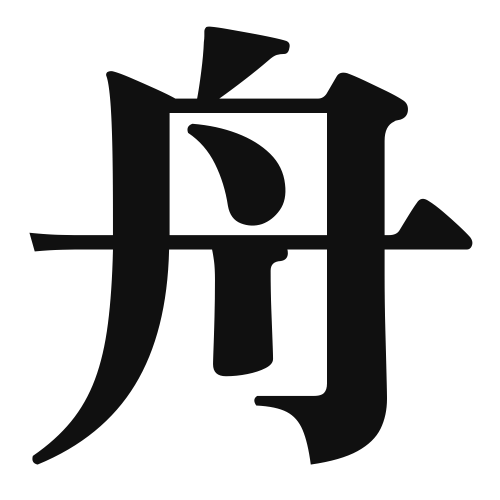1. Overview of Meaning
The kanji “舟” (pronounced “fune” in Japanese) means “boat” or “ship.” It represents a vessel used for transportation on water, symbolizing travel, adventure, and exploration.
2. Formation and Radical
The kanji “舟” is a pictogram, which means it visually represents its meaning. The character resembles a boat, with its shape reflecting the structure of a vessel. The radical for “舟” is also “舟,” which is used in other kanji related to boats and water transport.
3. Examples of Usage
Common words and phrases that include “舟” are:
- 舟運 (fun’un) – shipping or boat transport
- 舟旅 (funetabi) – boat trip
Example sentence in daily conversation:
「今週末、舟で湖を渡ります。」
(This weekend, I will cross the lake by boat.)
4. Synonyms and Antonyms
Similar kanji with related meanings include:
- 船 (fune) – also means “ship” but often refers to larger vessels or ships used for commercial purposes.
Antonyms or contrasting kanji include:
- 陸 (riku) – meaning “land,” representing the opposite of water.
5. Cultural and Historical Background
The kanji “舟” has significant ties to Japanese culture, particularly in traditional practices such as fishing and festivals that involve boats. It is often associated with the idea of journeying and exploration.
Proverbs and idiomatic expressions include:
- 舟を編む (fune o amu) – meaning “to build a boat,” which symbolizes preparation for a journey or undertaking a new venture.
